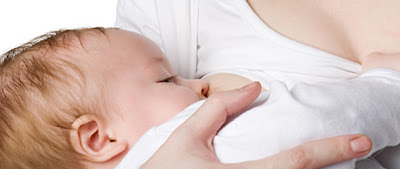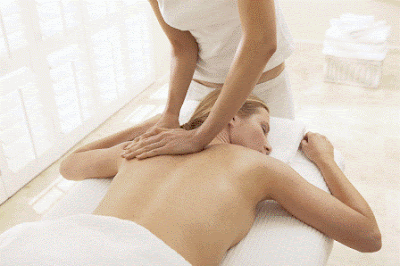Eat your way to good health
Multiple research studies have shown that eating certain foods can
help to minimize your risk of developing breast cancer. Some foods to
add into your diet include yellow/orange fruits and vegetables such as
butternut squash as they are packed with antioxidant beta-carotene which
has been linked to lowered risk of breast cancer. Flax seeds, walnuts,
cranberries and omega-3 fatty acids (found in oily fish, avocados and
eggs) have also been linked to reduced risk of breast cancer, while
eating foods high in magnesium can help prevent breast swelling and
tenderness.
Check your bra size
It is thought that more than 70 per cent of women regularly wear the
wrong bra size, yet this can not only lead to significant health
problems including poor posture, skin irritation and breathing
difficulties, but it can irreversibly damage breast ligaments, leading
to breast pain and sagging.
Breast size can change
frequently over your lifetime due to weight changes, pregnancy or
menopause so, rather than guessing your size, make sure you get measured
regularly to ensure you are getting the support you need.
Get into the exercise habit
Research has shown that exercising four or more hours a week can
lower estrogen levels and reduce risk of breast cancer, while separate
studies have suggested that weekly workouts can increase survival in
those with the illness. However, exercise is not only good for your
health; it can also help to prevent sagging and improve the look of your
boobs. While you may think that chest exercises are just for men,
working out the pectoral muscles through exercises such as push-ups and
bench presses is great for improving the firmness, lift and shape of
your breasts.
Get a natural lift
If you long for perkier, uplifted boobs, using a firming cream on
your breasts and décolletage can help you to achieve this look. While
applying a cream is unlikely to make any significant changes to the
overall size or shape of your breasts, by massaging a firming cream
regularly into your skin you can help to improve skin elasticity and
tone up the area, helping to prevent wrinkles and sagging and improve
the overall appearance of your boobs.
Fake a perfect cleavage
If you’re planning to wear a plunging neckline and want to make the
most of your cleavage, it is possible to create the appearance of bigger
breasts with a little bit of makeup. To cheat your way to a better
cleavage, don your favourite bra then lightly dust some matte bronzer
between your breasts, blending up and out to create the illusion of
shadow. Finish with a lighter, shimmery powder across the top of your
boobs and collarbones.
Check your breasts
According to a survey by Breakthrough Breast Cancer, only 35% of
women regularly check their breasts for signs of cancer. However, breast
cancer is a leading cause of death in women and early diagnosis can
rapidly increase chances of survival. Women are advised to get to know
their boobs by checking them each month and looking out for changes in
size, shape and skin texture, as well as checking for discharge, rashes
or lumps. If you are not sure how to go about checking your breasts,
visit a reputable website or ask your doctor for tips on performing
these necessary checks.
Quit smoking
Smoking has repeatedly been established as a leading cause of many
serious illnesses, and breast cancer is no different. A study by
researchers at the California Department of Health Services found that
the rate of breast cancer amongst women who smoked was around 30% higher
than for those who had never smoked. Separate research also suggests
that the effects of smoking are cumulative, with risk increasing
according to years of cigarette smoking, so stopping smoking now could
help cut your risk of developing the illness.
Apply sunscreen
Despite the warnings about skin cancer, many of us are still not
applying sunscreen on a regular basis. However, failing to apply sun
lotion not only puts the delicate chest area at risk of sunburn and skin
cancer, but it can also lead to premature ageing of the skin. To
prevent a wrinkly cleavage and help keep your décolletage smooth and
taut, make sure to apply a minimum of SPF 15 sunscreen whenever your
skin is exposed to the sun.
Wear a sports bra
When we work out, our breasts tend to move about with the movements
of our body. Exercising without adequate support (particularly for those
with larger breasts) can therefore lead to discomfort and pain, as well
as damage to ligaments which can cause breasts to sag. To make sure
your boobs are protected from the effects of exercise, make sure you
purchase a well-fitting exercise bra which is sturdier than your
everyday bra and can help minimize breast movement.
Improve your posture
If you want to give yourself an instant breast lift, the best thing
you can do is improve your posture. The chest muscles can lose
flexibility when your shoulders are hunched, causing sagging over time.
Furthermore, walking with a straighter back will make you boobs look
instantly bigger and more pert. Try to pay attention to how you stand
and sit throughout the day and consider taking up an exercise that will
improve your posture such as yoga, Pilates or Tai Chi.



 RSS Feed
RSS Feed Twitter
Twitter

 ১:৩৪ AM
১:৩৪ AM
 Health tips
Health tips




































